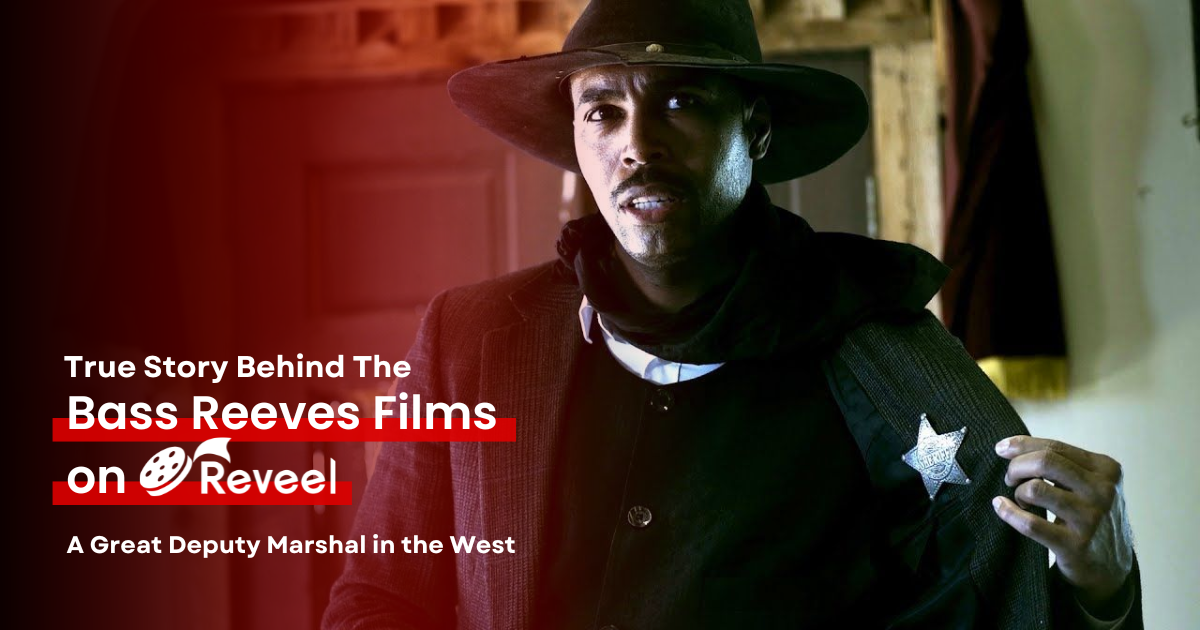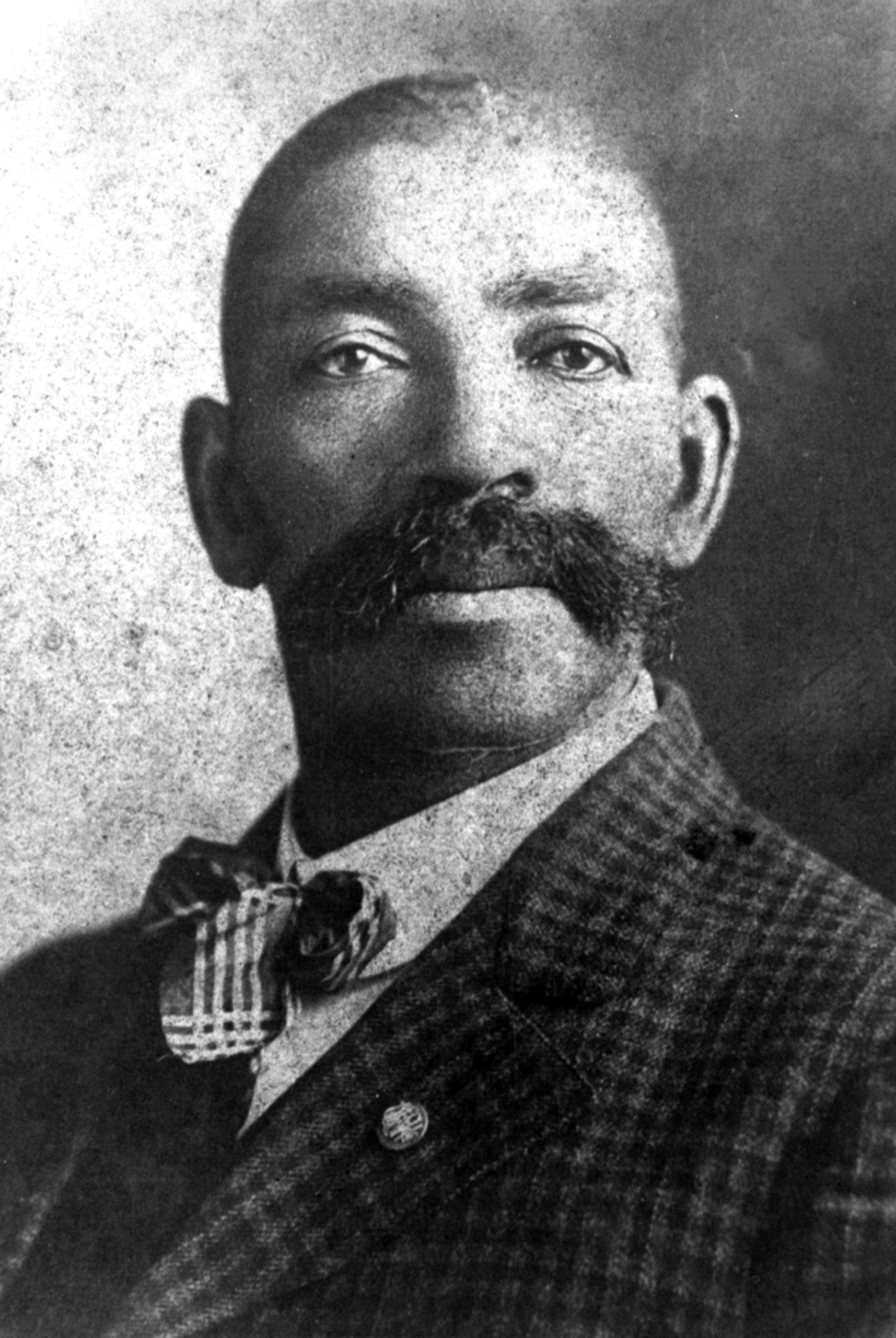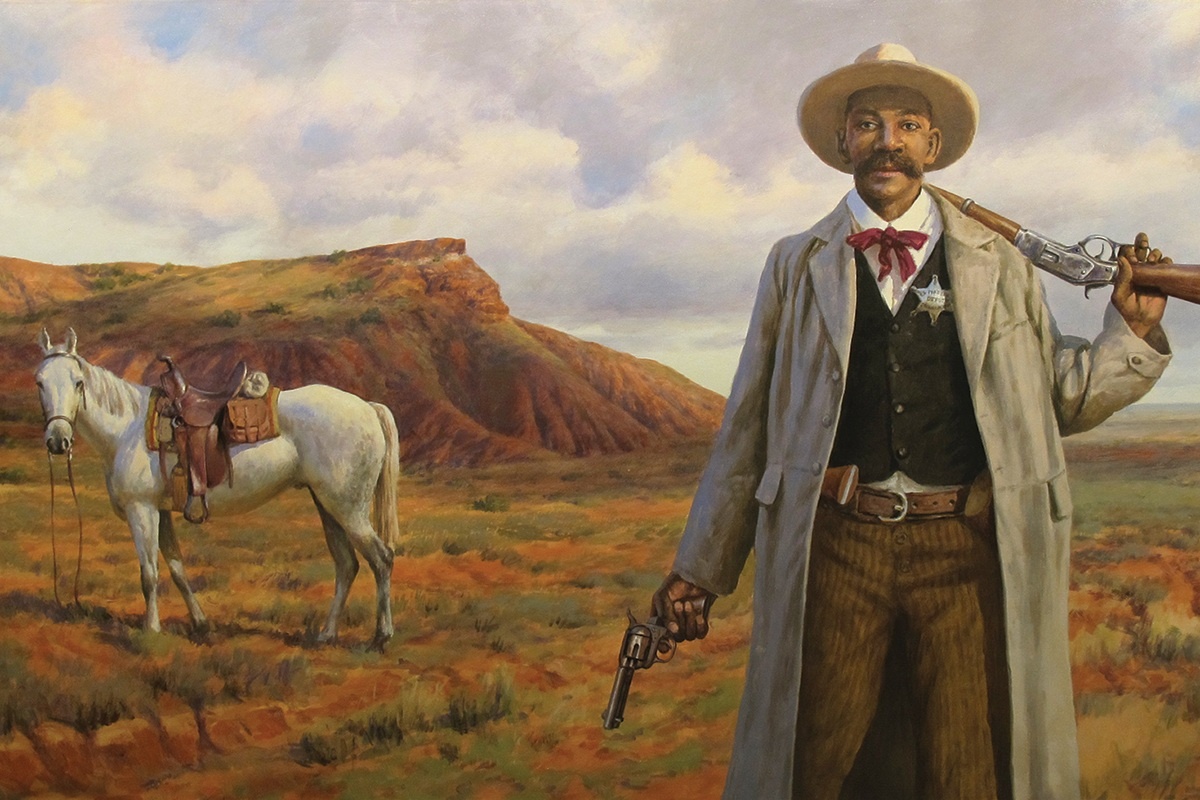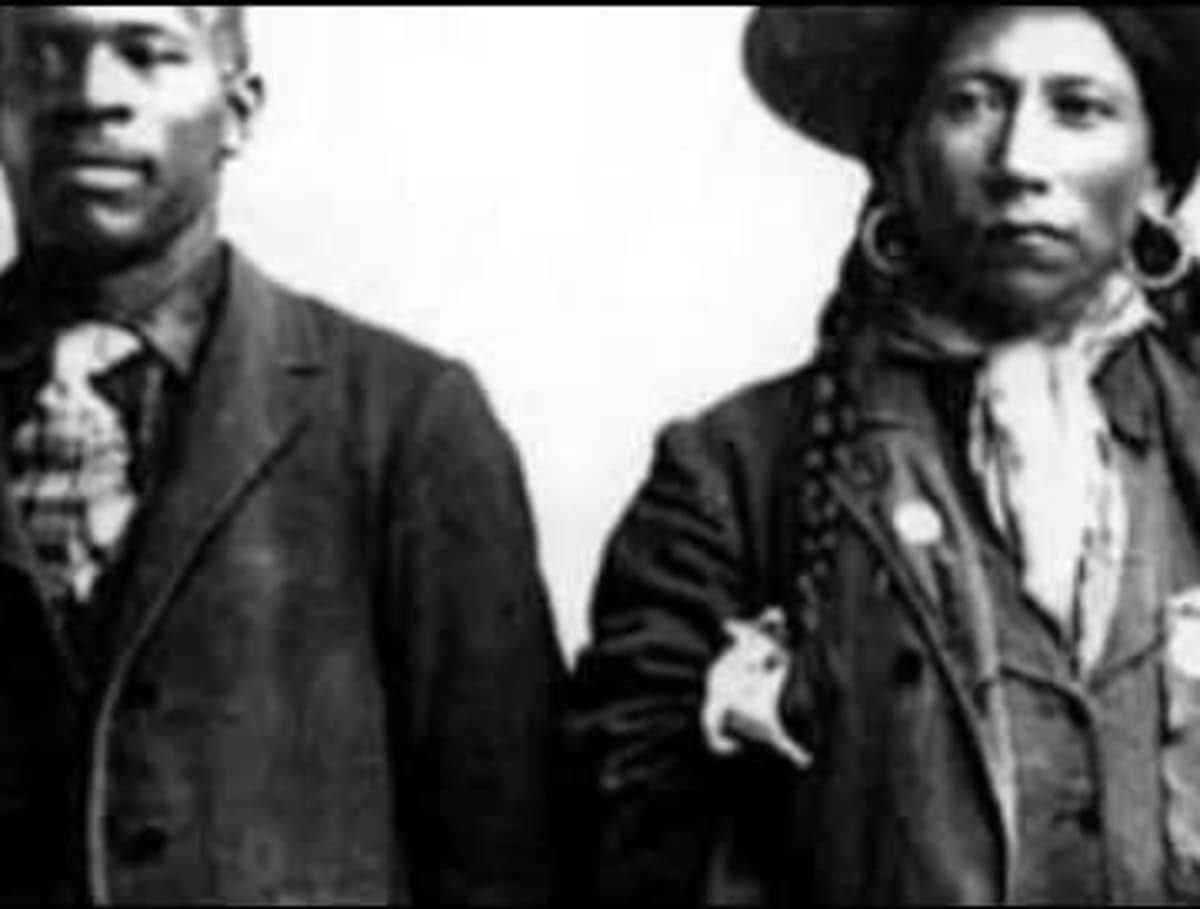
The Cowboy in the Wild West has a strong association with American culture thanks to film and television. When people think about Cowboys, they overwhelmingly think of the Clint Eastwoods and John Waynes as the quintessential cowboys. There were many cowboys in the American West, but contrary to popular belief and media portrayals, 25% of them were African American.
Historians now are estimating that 20% to 25% of Cowboys in the American West were likely African American. Black Cowboys were trained in the art of being a Cowboy by former slave masters, Spanish Cowboys, or Native American cattle handlers.
Film and television have failed to depict the American West with the diversity that was actually present. Only recently are we seeing an influx in movies or TV shows that capture the diverse Wild West. Many prominent figures in the West were African American, but one of the most famous was Deputy Marshal Bass Reeves. Marlon Ladd is a director who has created two short films about Bass Reeves and his time rounding up criminals. Before getting to the short films, let’s first go through who Bass Reeves was.

Who Was Bass Reeves?
Bass Reeves was an African-American who was born into slavery in Arkansas in 1838. He was named after his grandfather Bass Washington and his owner William Steele Reeves. Bass’s owner, William Steele Reeves, was an Arkansas state legislator who owned Bass and his family. At eight years old, Bass moved with his owner to Grayson County, Texas.
The young Reeves became a servant to the son of his owner, Colonel George R. Reeves in Texas. During the Civil War of the 1860s, Colonel Reeves brought Bass with him to fight for the Confederate Army. At some point during the war, Bass escaped from the Colonel and became a free man.
It’s unclear how exactly Bass escaped but some historians believe Bass learning about the Emancipation Proclamation led to an altercation with his former owner which led to the Colonel being gravely injured.
Bass fled to Indian Territory in Oklahoma where he lived among Native American tribes like the Cherokee, Creeks, and Seminoles. It was during this time he began to learn the Native American languages and customs. He stayed with the Native Americans until the Thirteenth Amendment abolished slavery in 1865.
The newly freed Bass Reeves then moved to Arkansas where he married a woman named Nellie Jennie and had 10 children. Reeves and his family were farmers until 1875 when Isaac Parker became the new Federal Judge of Indian Territory. Parker appointed James F. Fagan as the Marshal of the territory and ordered him to hire 200 deputy Marshals.
Fagan had heard of Reeves as someone who knew the territory and could speak several Native languages and recruited him to serve as the first black deputy west of the Mississippi River.
Bass Reeves’s Career as a Deputy Marshal
Since the Indian Territory was free of any state or federal jurisdiction, it became a hiding place for criminals from all over the country. The deputies were tasked with finding all of the dangerous criminals and bringing them in “dead or alive”.
Reeves was a deputy Marshal in the Indian Territories for 32 years. During that time he arrested over 3,000 criminals and killed 14 in self-defense. He was a quick shooter, bringing in dangerous criminals but never being wounded once.
Eyewitness accounts typically described Reeves as a 6’2” slender man, who was always impeccably dressed. He rode a white stallion and wore a tall hat. Bass Reeves was one of the most successful lawmen in the Old West and has out-of-this-world stories to match.
Notable Moments of Bass Reeves Career
One of the most notable stories about Bass Reeves is when he was tracking a notorious criminal named Bob Dozier. Dozier was a former farmer who turned to a life of crime not out of need but for unknown reasons. He was known as a jack of all trades when it came to criminal activity, excelling at robbery, horse theft, and murder.
Many lawmen were sent to apprehend Dozier but none of them were successful as the outlaw proved to be unpredictable until Bass Reeves. Reeves tracked him down for months and found him in the Cherokee Nation. Dozier refused to surrender to Reeves and after a gunfight between the two, was killed on December 20th, 1878.
Another story tells of the time Reeves was sent to capture three felons on one occasion. As Reeves was tracking down the three criminals, they managed to get the drop on him. They told Reeves to get off his horse and told him that he was about to die. Reeves responded by calmly taking out their warrants and asking the men what the time/date was.
When the men asked him why he wanted to know, Reeves informed them that he had to fill in the time and date on the arrest warrants. He then informed the three criminals that he could take them dead or alive.
The three men started laughing and it was at this moment that Reeves took his opportunity to get the jump on them. He grabbed the leader’s gun and killed one of the other men. He then grabbed the gun of the man he just killed and used it to break the leader’s skull. The third man surrendered.

What Was One Strategy Bass Reeves Used To Capture Criminals?
Bass Reeves is a master of disguise. Reeves had a reputation for using clever disguises to build rapport with criminals and gain their trust before making an arrest. He would often pose as a tramp, an outlaw, farmer, or Cowboy in order to get close to criminals. Reeves’s ability to go undercover and gain the trust of criminals was hard to match.
Despite being illiterate Reeves managed to successfully bring in the criminals he was after. He would memorize the arrest warrants before going out on a job. Reeves would sometimes ask criminals to read the search warrant or a letter for him as a means of lowering their guard, then would draw his weapon.
The Story of Bass Reeves Arresting His Son
Bass Reeves was an honorable Deputy Marshal who put the law over everything, even his own son. One day in 1902, Reeves brought two prisoners to US Marshal Leo Bennett when he learned terrible news. His son, Benjamin Reeves “Bennie” had murdered his wife in a fit of jealousy. A warrant had been out for Bennie’s arrest for two days but other deputies were reluctant to take it.
Reeves was shocked and deeply shaken by the news but nevertheless took it upon himself to arrest his own son. Bennie was hunted down by his father and two weeks later, was captured without incident and brought to Marshal Bennett. Bennie was tried and convicted for over a decade in prison. Because of his good behavior and a pardon, Bennie was released from prison and lived the rest of his life as a model citizen.
How Did Bass Reeves Die?
Bass Reeves retired from his career as a U.S. Marshal at 68 years old in 1907 when Oklahoma became an official state. Reeves became a police officer at the Muskogee Police Department for two years before becoming ill and officially retiring. His health began to rapidly decline after retirement and on January 12th, 1910, he died of Bright’s Disease, now known as nephritis. The legacy of Bass Reeves continues on as an inspiration to lawmen and African Americans everywhere.

Bass Reeves and The Lone Ranger
Many believe that the popular Lone Ranger character from the radio show, television show, books, and movies was partly inspired by the life of Bass Reeves. The character of The Lone Ranger shares many similarities to Reeves. They both rode a white horse, had a Native American partner, and both were masters of disguise.
Bass Reeves also apprehended many fugitives that were sent to the Detroit House of Corrections, which was in the same city that The Lone Ranger radio broadcast would be introduced to the world.
Bass Reeves also captured several outlaws who were sent to the Detroit House of Corrections, which was located in the same city that The Lone Ranger radio program was first broadcasted to the world. Last but not least, the Lone Ranger gave out silver bullets and Bass Reeves was known to give people silver coins in order to gain favor.
Watch Short Bass Reeves Movies on Reveel
The life of Bass Reeves was so extraordinary that at times it may seem stranger than fiction could ever be. It was full of danger, excitement, and engaging stories of compelling scenarios. His life is the perfect source for a film or TV series and yet there is barely any mention of him in mainstream media.
Marlon Ladd has created two tense and action-packed short films about Bass Reeves that capture the spirit behind the lawman. You can watch both of these short films right now on Reveel.
Bass Reeves: The Short Film
Bass Reeves, the greatest lawman to ever live attempts to serve an arrest warrant on Ben Carver and his gang. Little did Reeves know he would be outgunned and that the outlaws would put up a fight to make sure he never serves a warrant again.
Watch Bass Reeves: The Short Film Here
Bass Reeves: Lawless
A mysterious gunman stumbles upon a couple of outlaws searching through a dead man’s belongings. The outlaws quickly discover that the gunman is actually Bass Reeves, the greatest lawman to ever live.






